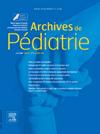Predictors of radiographic pneumonia in febrile children with cancer presenting to the emergency department
IF 1.3
4区 医学
Q3 PEDIATRICS
引用次数: 0
Abstract
Background
Fever is a common presenting complaint to the pediatric emergency department (PED), especially among oncology patients. While bacteremia has been extensively studied in this population, pneumonia has not. Some studies suggest that chest X-ray (CXR) does not have a role in the investigation of neutropenic fever in the absence of respiratory symptoms, yet non-neutropenic pediatric oncology patients were excluded from these studies.
Objective
We aimed to determine the incidence of CXRs ordered for febrile pediatric oncology patients, irrespective of their absolute neutrophil count (ANC), and to evaluate the rates of radiographic pneumonia as well as predictors of the latter in this group.
Method
This study was conducted in the PED at the American University of Beirut Medical Center (AUBMC), an Eastern Mediterranean tertiary-care hospital. We conducted a retrospective cohort study of acutely febrile pediatric cancer patients, younger than 18 years, presenting to a tertiary center from 2014 to 2018. We included one randomly selected febrile visit per patient. Fever was defined as a single oral temperature ≥38 °C within 24 h of presentation. We collected data on patient characteristics and outcomes. Our primary outcome was radiographic pneumonia; our secondary outcome was whether a CXR was done or not. We defined radiographic pneumonia as a consolidation, pleural effusion, infiltrate, pneumonia, “infiltrate vs. atelectasis,” or possible pneumonia mentioned by the radiologist. SPSS was used for the statistical analysis.
Results
We reviewed a total of 664 medical charts and included data from 342 febrile pediatric patients in our analysis. Of these, 64 (18.7%) had a CXR performed. Overall, 16 (25%) had radiographic pneumonia while 48 (75%) did not. Patients were significantly more likely to have a CXR performed if they presented with upper respiratory tract symptoms, cough (p < 0.001 for both), or abnormal lung auscultation at the bedside (p = 0.004). Patients were also less likely to have a CXR done if they were asymptomatic upon admission to the PED (p < 0.001). However, neither cough nor shortness of breath nor abnormal lung examinations were significant predictors of a positive CXR (p = 0.17, 0.43, and 0.669, respectively). Patients with radiographic pneumonia were found to be significantly younger (4.29 vs. 6 years, p = 0.03), with a longer time since their last chemotherapy (15 vs. 7 days, p = 0.005), and were given intravenous (IV) bolus in the PED (87.5% vs. 56.3%, p = 0.02). Interestingly, patients with higher white blood cell (WBC) counts were more likely to have radiographic pneumonia (4850 vs. 1750, p = 0.01). Having a cough and an abnormal lung examination on presentation increased the odds of having a CXR (adjusted odds ratio [aOR]: 6.6; 95% confidence interval [CI]: 3.4–12.8 and aOR: 4.5; 95% CI: 1.1–18.3, respectively). Returning to the PED for the same complaint within 2 weeks was associated with lower odds of a CXR at the index visit (aOR: 0.3; 95% CI: 0.1–0.6). For every year the child is older, the odds of having radiographic pneumonia decreased by 0.8 (95% CI: 0.6–0.98). However, for every day since the last chemotherapy session, the odds increased by 1.1 (95% CI: 1.01–1.12).
Conclusion
In our sample, CXR was not commonly performed in the initial assessment of febrile cancer patients in the PED, unless respiratory symptoms or an abnormal lung examination was noted. However, these were not significant predictors of radiographic pneumonia. Further studies are needed to identify better predictors of pneumonia in this high-risk population.
急诊科癌症发热患儿放射性肺炎的预测因素。
背景:发热是儿科急诊室(PED)的常见主诉,尤其是在肿瘤患者中。虽然已对这一人群中的菌血症进行了广泛研究,但尚未对肺炎进行研究。一些研究表明,在没有呼吸道症状的情况下,胸部 X 光片(CXR)在中性粒细胞减少性发热的检查中没有作用,但这些研究并不包括非中性粒细胞减少性儿科肿瘤患者:我们旨在确定发热儿科肿瘤患者(无论其绝对中性粒细胞计数(ANC)如何)接受 CXR 检查的发生率,并评估该群体中放射性肺炎的发生率及其预测因素:本研究在贝鲁特美国大学医学中心(AUBMC)的 PED 进行,这是一家东地中海地区的三级医院。我们对2014年至2018年期间在一家三级中心就诊的18岁以下急性发热儿科癌症患者进行了一项回顾性队列研究。我们为每位患者随机抽取了一次发热就诊。发热定义为就诊 24 小时内单次口腔温度≥38 ℃。我们收集了有关患者特征和结果的数据。我们的主要结果是放射性肺炎;次要结果是是否进行了 CXR 检查。我们将放射性肺炎定义为合并症、胸腔积液、浸润、肺炎、"浸润与肺不张 "或放射科医生提到的可能肺炎。统计分析采用 SPSS:我们共查阅了 664 份病历,并将 342 名发热儿科患者的数据纳入分析。其中,64 例(18.7%)患者进行了 CXR 检查。总体而言,16 人(25%)患有放射性肺炎,48 人(75%)没有。如果患者出现上呼吸道症状、咳嗽(两者的P < 0.001)或床旁肺部听诊异常(P = 0.004),则进行CXR检查的可能性明显增大。如果患者在入院时无症状,也不太可能进行 CXR 检查(p < 0.001)。然而,咳嗽、气短或肺部检查异常都不是预测 CXR 阳性的重要因素(p = 0.17、0.43 和 0.669)。发现放射性肺炎患者明显更年轻(4.29 岁对 6 岁,p = 0.03),距离上次化疗时间更长(15 天对 7 天,p = 0.005),并且在 PED 中接受静脉注射(87.5% 对 56.3%,p = 0.02)。有趣的是,白细胞(WBC)计数较高的患者更有可能患放射性肺炎(4850 对 1750,P = 0.01)。咳嗽和就诊时肺部检查异常会增加进行 CXR 检查的几率(调整后的几率比 [aOR]:6.6;95% 置信区间 [CI]:3.4-12.8;调整后的几率比 [aOR]:6.6-12.8):分别为 3.4-12.8 和 aOR:4.5;95% 置信区间:1.1-18.3)。在 2 周内因同样的主诉再次到 PED 就诊与指标就诊时进行 CXR 的几率较低有关(aOR:0.3;95% CI:0.1-0.6)。患儿年龄每增加一岁,患放射性肺炎的几率就会降低 0.8(95% CI:0.6-0.98)。然而,自最后一次化疗后每增加一天,患放射性肺炎的几率就会增加 1.1(95% CI:1.01-1.12):在我们的样本中,除非出现呼吸道症状或肺部检查异常,否则在对PED中发热的癌症患者进行初步评估时,通常不会进行CXR检查。然而,这些并不是放射性肺炎的重要预测因素。我们需要进一步研究,以确定在这一高风险人群中更好的肺炎预测指标。
本文章由计算机程序翻译,如有差异,请以英文原文为准。
求助全文
约1分钟内获得全文
求助全文
来源期刊

Archives De Pediatrie
医学-小儿科
CiteScore
2.80
自引率
5.60%
发文量
106
审稿时长
24.1 weeks
期刊介绍:
Archives de Pédiatrie publishes in English original Research papers, Review articles, Short communications, Practice guidelines, Editorials and Letters in all fields relevant to pediatrics.
Eight issues of Archives de Pédiatrie are released annually, as well as supplementary and special editions to complete these regular issues.
All manuscripts submitted to the journal are subjected to peer review by international experts, and must:
Be written in excellent English, clear and easy to understand, precise and concise;
Bring new, interesting, valid information - and improve clinical care or guide future research;
Be solely the work of the author(s) stated;
Not have been previously published elsewhere and not be under consideration by another journal;
Be in accordance with the journal''s Guide for Authors'' instructions: manuscripts that fail to comply with these rules may be returned to the authors without being reviewed.
Under no circumstances does the journal guarantee publication before the editorial board makes its final decision.
Archives de Pédiatrie is the official publication of the French Society of Pediatrics.
 求助内容:
求助内容: 应助结果提醒方式:
应助结果提醒方式:


